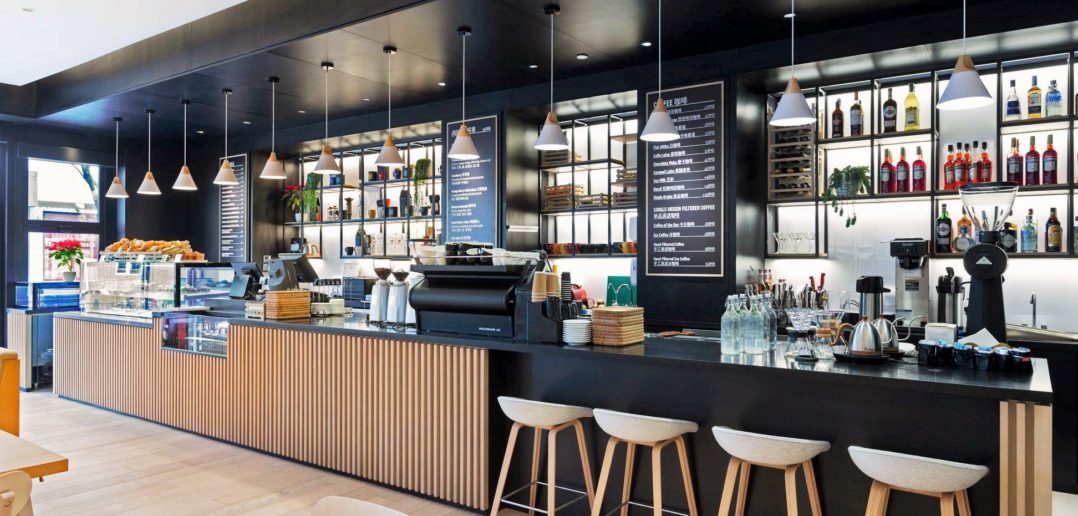Mediterranean cuisine has become a point of reference for the global diet, and the Italian one has consistently been identified as an emblem of excellence able to combine tradition and innovation, varied and complete cuisine, quality and freshness. Not to mention the role of enogastronomy for national exports.
Italians have the ability to link the great theme of the kitchen to that of the work of our producers; a distinctive feature that makes the Italian model unique in the world. When we describe a dish, we also tell the story of its maker, of a territory, of the quality of raw materials. A chain in which safety and excellence become key words. Expo Milano has made everyone understand the great value of food for our nation and it has increased the synergy between institutions, the world of cooking and agro-food – to tell our know how and what it means to be Italian: contests, conferences, tastings, theme dinners, film screenings, technical-scientific exhibitions and seminars.
The goals are various: to enhance and revitalise the Italian culinary tradition abroad by proposing the excellence of the “Made in Italy” agro-food products; to spread the knowledge of the Italian food and wine production, with particular reference to certified quality products; to enhance Italian know-how; to spread the unique values of the Mediterranean diet; to present the offer of our country in the food and wine sector; to strengthen the presence of Italian cuisine abroad also through the presentation of the quality Italian catering offer; and to promote the “taste paths” in Italy for tourists.

Mixed use retail and leisure: What happens next? – White Paper
Simultaneously with this cultural expansion, a “real” expansion has taken place with Italian formats/concepts that have crossed national borders, thus becoming international brands born in Italy.
Among the different Italian brands gone international, the following five are worth mentioning:
Alice Pizza

Alice Pizza was founded and led by Domenico Giovannini, who opened the first store in 1990. The chain, a market leader in Italy for sliced pizza, is in continuous and rapid expansion and proposes an “artisan” franchise, characterised by high quality standards. The success of Alice comes from the product: years of experience have allowed the company to create an artisanal production process replicable in each store, whose secret is in the dough remained unchanged for more than 20 years, and characterised by a low content of yeast.
The opening in Dubai in January of this year follows the December 2017 one in Philadelphia in addition to the existing 2 in Spain and 127 in Italy. Rome will conquer the world: where Julius Caesar failed with arms, Domenico Giovannini succeeded with pizza. Omnium rerum principia parva sunt.
La Piadineria

The brand, recently acquired by Permira, the international investment company based in the UK, currently operates over 165 restaurants located in shopping malls and downtown locations mainly in Northern and Central Italy. In 2017, it successfully opened the first 2 French locations: in Nice inside the Nicetoile shopping center and in Marseille, at Les Terrasses du Port. From France it will consolidate the international development.
Founded in 1994 its managing director is Donato Romano and in the last four years he has doubled the network, tripling the turnover now exceeding 60 million euros. The brand produces 12 million piade (the Italian equivalent of tortillas) per year and is a market leader in this specific segment, thanks to the offering of over 30 types of piadine, prepared with a dough entirely produced in the Montirone (Brescia) factory.
Princi

In the summer of 2016 Rocco Princi founder of this premium bakery product brand reached an agreement with Starbucks to sell its products inside the Seattle’s Starbucks Reserve Roastery & Tasting Room. Given the exceptional results, Princi will open with its own brand shop inside all the Roastery locations of the US chain. The 2800 square meters of Shangai’s Starbucks Reserve Roastery & Tasting Room, opened last december with a Princi store inside and New York, Tokyo and Chicago Roastery will soon follow.
Recently, Starbucks has launched a new format named Reserve Stores, which has an expanded offering compared to the classic Starbucks, and even in these stores customers will find the Bakery with the Princi banner. Moreover, Starbucks will support the launch of numerous Princi own shops without the Starbucks brand, but will nevertheless be its selected allies and suppliers.
Princi opened his first store in 1986 in Milan and 5 others followed, then one in London’s Soho. But the best is yet to come. A prestigious overseas “flag” for Italian entrepreneurship.
Moleskine Cafè

Moleskine Cafè is more than just a place to drink coffee: it is a space available for the local community to socialise, share ideas and be inspired by creativity. It combines elements of a cafeteria an art gallery and a retail store. The design reflects the “timeless” aesthetics of the notebooks that made the brand famous: simple and in neutral colors.
After the opening of the first coffee in the heart of Brera Milan, in 2016, the format opened in Beijing last January 23 in Taikoo Li, a shopping center in the Sanlitun district, an area full of trendy bars and restaurants and boutiques of international designers. The company’s goal in the short term is to make other openings in international contexts well known for innovation, creativity and inspiration: Hamburg, London and New York have already been secured.
Obicà Mozzarella Bar

The chain currently counts 24 stores: 10 in Italy and 14 abroad. Five are in London, five in the US (2 in New York, 2 in Los Angeles and 1 in Santa Monica) and four in Japan (2 in Tokyo and Osaka and Yokohama with one each) with a scheduled fifth opening in Tokyo on April 17th. All the restaurants are directly managed, except the ones in the Far East.
Obicà is a concept that places the Mozzarella di Bufala Campana Dop at the center of its gastronomic project, but the menu also offers a proposal of Italian gastronomy and high quality artisan products. All meals are prepared on sight, just like in a sushi bar in an informal and modern setting.
Davide Di Lorenzo, CEO of Obicà, says that “in Obicà restaurants raw materials, sourced exclusively from selected suppliers in Italy, are processed in the Mozzarella bar, overlooking the hall. Fresh Mozzarella supply is guaranteed every two days, also in Japan: a significant but essential cost” confirming that attention to the quality of the main product is the cornerstone of the company philosophy and values.
New openings are scheduled in France, Germany with additional restaurants in London and New York: another flagship, immediately comprehensible, of our country in the world.


![[NEW] MAPIC interview: In conversation with Giovanni Porcu, CEO and founder of Doppio Malto](https://www.beyondretailindustry.com/wp-content/uploads/2024/03/DM-Magenta_1-351x185.jpeg)

